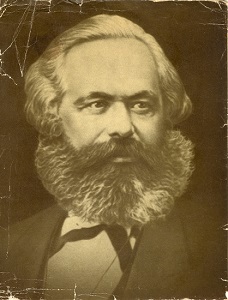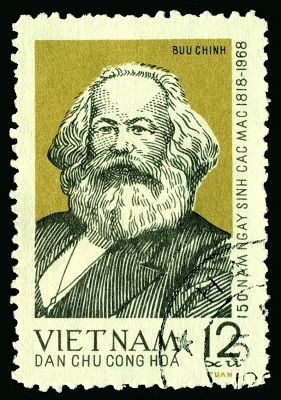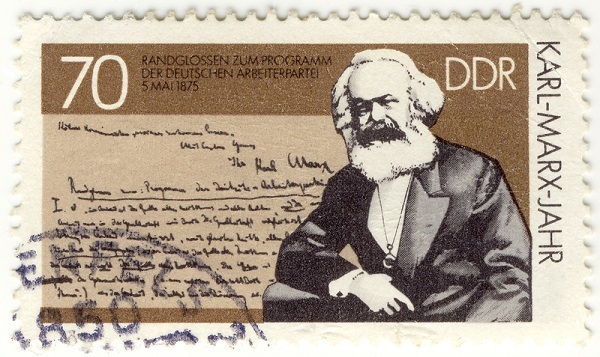

 Karl Heinrich Marx was a German philosopher. He was also a historian, journalist, sociologist, economist, socialist revolutionary, political theorist, and critic of political economy. Marx is known as one of the most influential historical figures. This article discusses different stages of Marx’s life. Learn more about Karl Marx in this article.
Karl Heinrich Marx was a German philosopher. He was also a historian, journalist, sociologist, economist, socialist revolutionary, political theorist, and critic of political economy. Marx is known as one of the most influential historical figures. This article discusses different stages of Marx’s life. Learn more about Karl Marx in this article.
Karl Heinrich Marx was born to Heinrich Marx and Henriette Pressburg in Brückengasse, Trier, Germany on May 5th, 1818. Karl was the third child in Marx’s family. Marx was homeschooled by his father until he joined Trier High School in 1830.
In October 1835, at the age of 17 Marx wished to study philosophy and literature at the University of Bonn, but his father insisted that he studies law, it being a more practical field. While at the University of Bonn, Marx joined the Poet’s club and Trier Tavern Club drinking society, both of which influenced his ideals and views on political matters. In August 1836, his grades started deteriorating, due to which his father forced him to transfer to a more serious and academic University of Berlin.
Before going to the University of Berlin, Marx spent rest of the 1836 at home in Trier. During that time he became more serious about his studies and life. He also got engaged to his childhood friend Jenny von Westphalen. They later got married on June 19th, 1843. Marx had great relations with his father-in-law as well, and Marx dedicated his doctoral thesis to him.
After moving to Berlin, in October of 1836, to attend University. Marx always believed that “without philosophy, nothing could be accomplished”. he later joined ‘Doctor’s Club’, a student group that used to discuss Hegelian ideas.
In 1841 he completed his doctoral thesis, The Difference Between the Democritean and Epicurean Philosophy of Nature, his essay was quite controversial among the conservative professors at the University of Berlin, so instead, he submitted it to the University of Jena, where he was awarded his Ph.D. in April of 1841.
In 1842, Marx moved to Cologne where he became a Journalist, for Rhineland News. After publishing a strong article about the Russian monarchy, Tsar Nicholas I, requested it be banned and the Prussian government complied, thus in 1843 Rhineland News was banned.
In October 1843, Marx moved to Paris and started working as a co-editor of a new, radical left-wing newspaper, namely the German-French Annals. He later left annals for the only uncensored german, Paris-based newspaper, ‘Forward!’. In 1845 french government shut down ‘Forward!’, leading Marx to move to Brussels in February 1845.
In Brussels, Marx had to pledge not to publish anything related to contemporary politics. Later in July Marx moved to England and started to work on a book, called German Ideology. Marx, after finishing German Ideology started another book called, The Poverty of Philosophy.
Marx moved back to Cologne in 1848. On June 1st, Marx started a newspaper called New Rhineland News, where once again due to his strong opinions, Marx was regularly harassed by police and was later ordered to leave the country on May 16th, 1849, moving back to Paris, and later to London in August 1849.
In London, Marx’s main source of income from 1852 to 1862 was by publishing from New York’s Daily Tribune. Later in 1862, he was let go from being published at Tribune, but a few years later, in 1868, his coworker Charles Dana started a rival newspaper New York Sun, where Marx was editor-in-chief.
During his time in London, while not working anywhere in particular again, Marx became involved with International Workingmen’s Association, also known as First International, on whose inception, he was elected to General Council.
During his years in London Marx worked on the biggest project of his life, including a three-volume composition of his life’s work called Das Kapital was published in 1867.

Following his wife’s death in December 1881, Marx developed bronchitis and pleurisy, ending his life in London, on March 14th, 1883 at the age of 64. Marx at the time of his death was considered a stateless person, i.e., a person that legally isn’t a part of any nation. He was buried in Highgate Cemetary by his family and friends in London.
Marx was one of the most influential historical figures, he was a german philosopher and journalist by profession. He graduated from Trier Highschool and Attended the University of Bronn and later transferred to the University of Berlin. He graduated from the University of Berlin in 1841 with his doctoral thesis from the University of Jena. Marx moved to different cities and countries for his work. His main works include Rhineland News, Annals, Forward, and NY’s Daily Tribune. In 1883, Marx died of bronchitis at the age of 64.
Q1. What were some of the early works of Marx that never were published in his lifetime?
Ans. Marx wrote some short novels and dramas such as Scorpion and Felix, and Oulanem during his college years in Berlin, along with some poems he wrote to his later-to-be wife Jenny von Westphalen, which never got published in his lifetime.
Q2. Where did Marx meet his lifelong friend, Friedrich Engels, and how did their relationship begin?
Ans. Marx met Friedrich Engels at a chess centre called Café de la Régence, their friendship began when Engles showed Marx his latest published work, “The condition of Working Class in England in 1844”, and convinced Marx about the importance of the working class in the final revolution in history.
Q3. What were the three volumes of Das Kapital named?
Ans. The three volumes are,
Capital: Critique of Political Economy
Capital II: The Process of Circulation of Capital
Capital III: The Process of Capitalist Production as a Whole